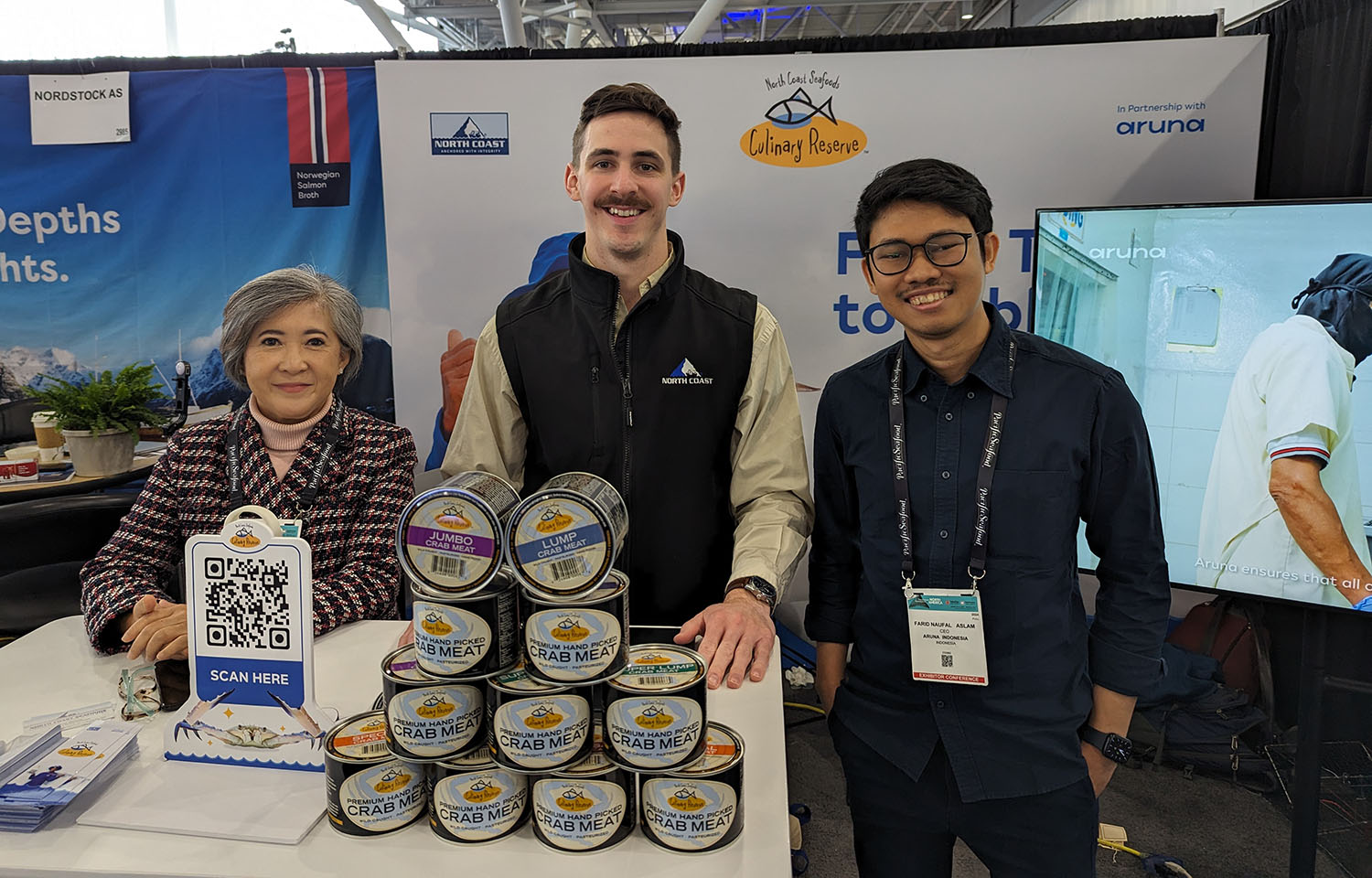Indonesia-based e-commerce and supply chain integration platform Aruna has partnered with North Coast Seafoods to bring blue swimming crab caught within its network of fishermen to the U.S.
Aruna, a startup founded in 2016, works to create a fair trading environment for Indonesian fishermen to improve their livelihoods while simultaneously enhancing the traceability of the country's blue swimming crab fishery.
Aruna CEO and Co-Founder Farid Naufal Aslam told SeafoodSource during Seafood Expo North America – which ran from 10 to 12 March in Boston, Massachusetts, U.S.A. – that the company accomplishes its goals by giving fishermen the tools they need to enjoy a more transparent trading environment and reduce middlemen.
To accomplish that goal, Aruna has created a business-to-business (B2B) e-commerce and supply chain integration platform that directly connects 55,000 fishermen in Indonesia with buyers.
“This community consists of what we call Aruna hubs,” Aslam said. “The hubs are warehouses, as well as mini processing facilities, and we have 150 locations all over Indonesia that are covering these 55,000 fishermen – that’s our scale. We already cover all over Indonesia, and we can say in terms of the fishermen network, we are the leading one in Indonesia.”
The company focuses heavily on the blue swimming crab fishery, which is primarily fished on a small scale by local fishermen. Social issues have remained a concern in the fishery, including an unequal supply chain that sees processors taking the majority of the profit in the fishery and fishers frequently living at wages below the national average.
The small-scale nature of the fishery, Aslam said, is a part of the problem that Aruna is aiming to solve.
“It’s created a lot of middlemen along the way, so the supply chain is ineffective. In reality, it has become like six to seven middlemen along the way,” he said. That is, in part, caused by the archipelagic geography of Indonesia, which naturally separates communities and infrastructure, he added.
Aslam said what Aruna manages to do is consolidate the supply chain, which results in a more robust, efficient, and traceable supply chain that can pay fishers more for their catch. It also helps fishermen by educating them on what sort of quality or catch is being purchased at the time.
“Previously, they were far away from the market. They didn’t know the real specifications that the market needed,” Aslam said. “Now, with us, they know what they want to sell; they sell specific types of products with specific quality. With that condition, they are selling less, but they are getting more in terms of their income.”
To further increase the value, Aruna enhances the traceability of the fishery by providing ...








